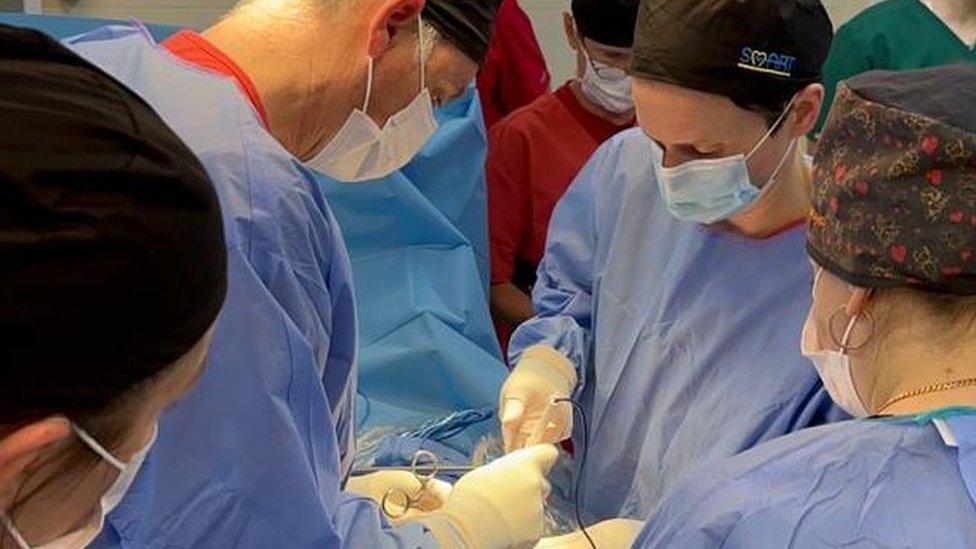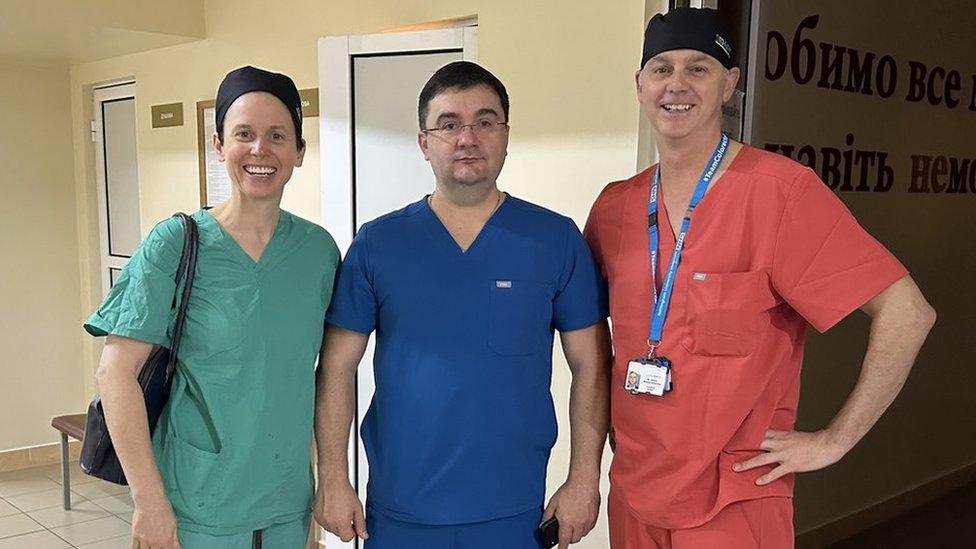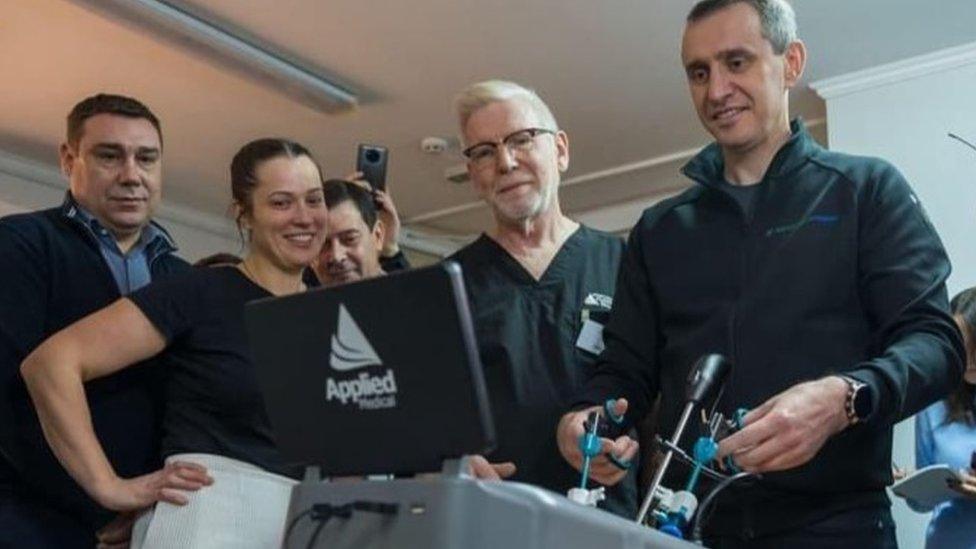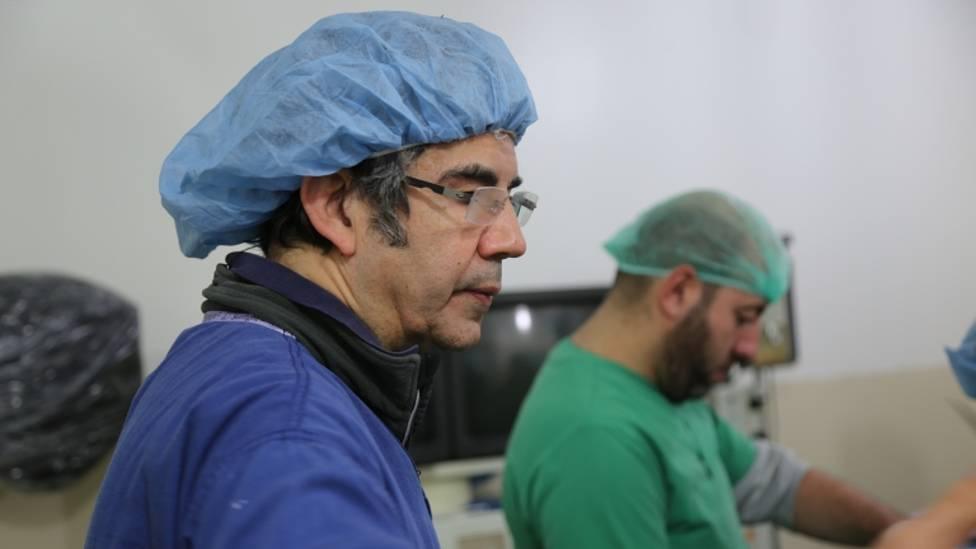Nottingham: Surgeons from city train medics in Ukraine
- Published

Charles Maxwell-Armstrong said operating in a foreign theatre in the middle of a war zone was a challenge
Two Nottingham surgeons have been training medics in Ukraine after doctors fled the country at the start of the war.
Charles Maxwell-Armstrong and Katie Walter were part of a six-strong team teaching 150 surgeons in Lutsk.
The visit included advanced training in keyhole surgery.
Mr Maxwell-Armstrong said they had to be careful having so many doctors in one place because "one strike could wipe out a generation of surgeons".
He added: "Operating in a foreign theatre in the middle of a war zone, in front of 150 Ukrainian surgeons, on patients you've never really met, with equipment you've had to scrape together, and with a team you've never worked with - where very few people spoke English - it was a challenge."

With large gatherings banned, registration for the training was arranged by word of mouth
The visit was organised by Dutch-Ukrainian charity SMART Medical Aid.
Mr Maxwell-Armstrong, who is a colorectal surgeon for Nottingham University Hospitals NHS Trust along with Ms Walter, said: "In terms of laparoscopic skills, they are where we were around 15 to 20 years ago."
Lutsk is in the north-west of Ukraine, away from the fighting but with large gatherings banned, registration for the training was arranged by word of mouth.
"Something that made us nervous was that hospitals do get bombed in Ukraine," Mr Maxwell-Armstrong added.
Ms Walter said: "The doctors told us how, at the start of the conflict, many senior doctors had fled the country leaving them in charge.
"They had received donations of kit and medical equipment from around the world but this was not always kit they knew how to use or needed, and how they are still short of many supplies.
"Many of the doctors left in charge were three or four years out of medical school."

While they were there, mobile phone bomb apps sounded alerts throughout the day
The group also met Ukraine health minister Viktor Liashko to discuss the need to establish a national, funded training programme.
Describing what it was like there, Ms Walter said there was a 22:00 curfew, windows were taped to limit shatter-damage, bomb sirens were going off and mobile phone bomb apps sounded alerts throughout the day.
"The hospital was surrounded by armed soldiers on the day we left, as it prepared to take a convoy of wounded soldiers arriving by special evacuation trains from the front line," she said.
Ms Walter added parents told them how they wake their children in the night to head to shelters, or spend nights in their bathroom comforting their youngsters sleeping in the bath, the place thought to be the safest in the house to protect from a blast.

Follow BBC East Midlands on Facebook, external, on X, external, or on Instagram, external. Send your story ideas to eastmidsnews@bbc.co.uk, external.
Related topics
- Published24 April 2022
